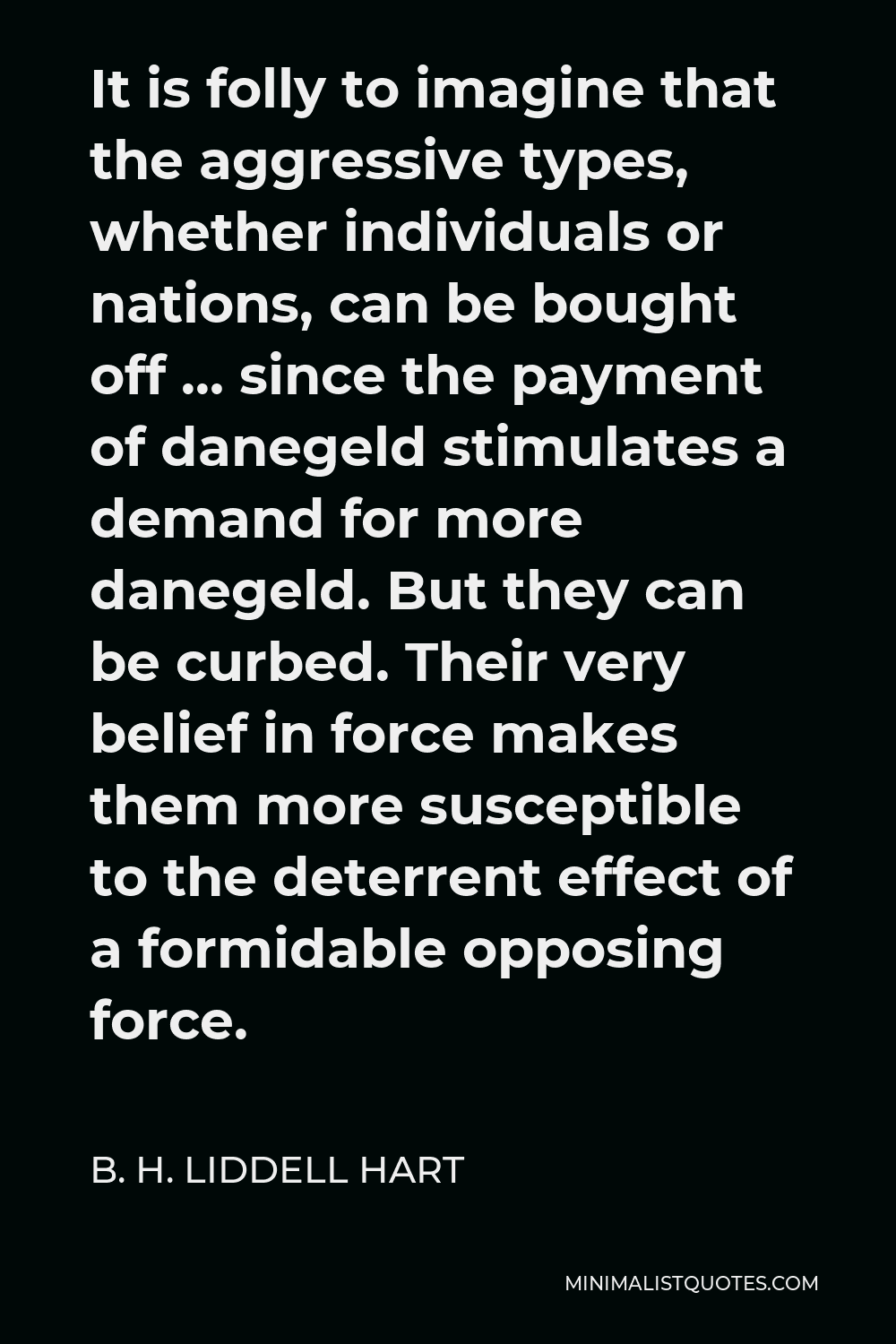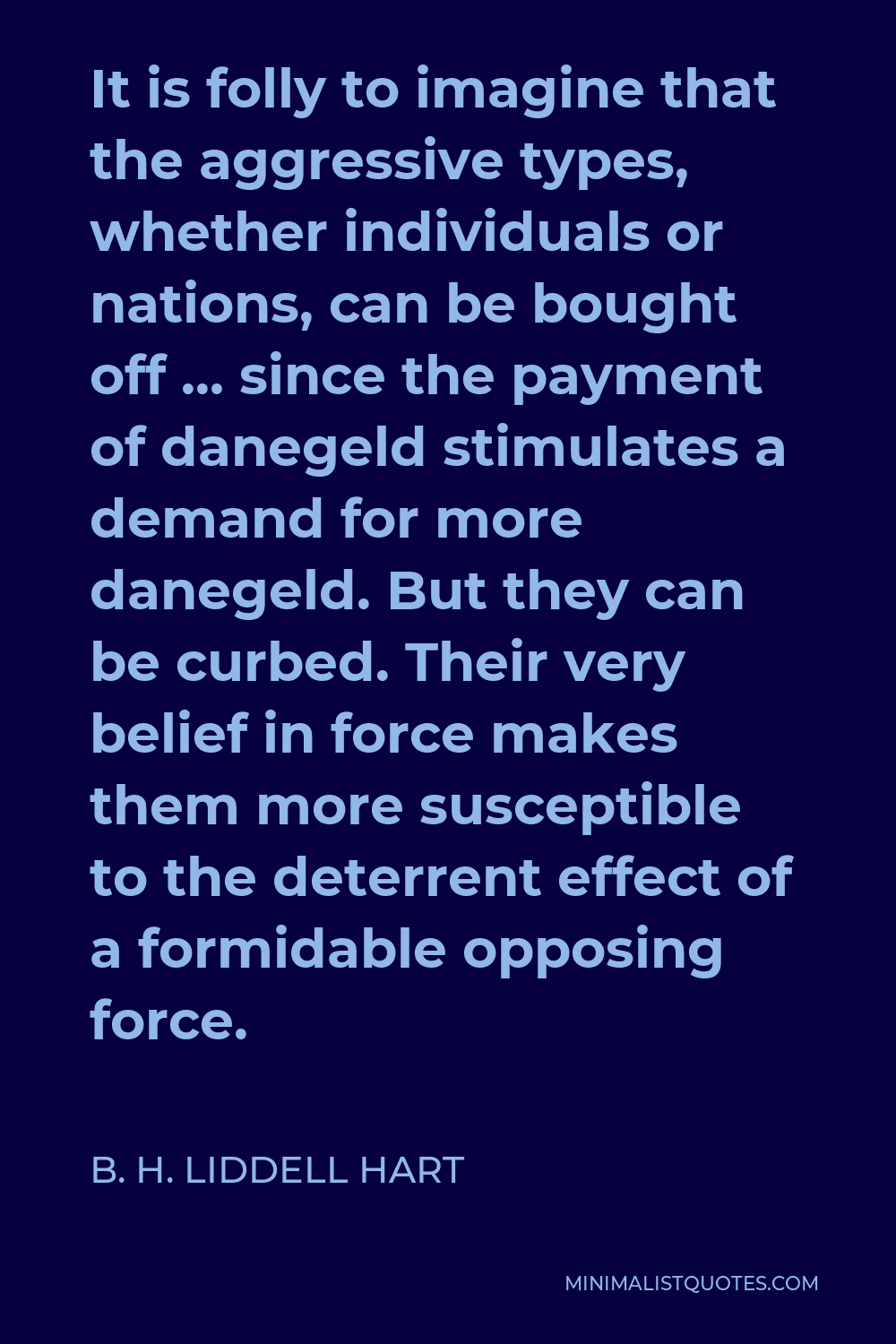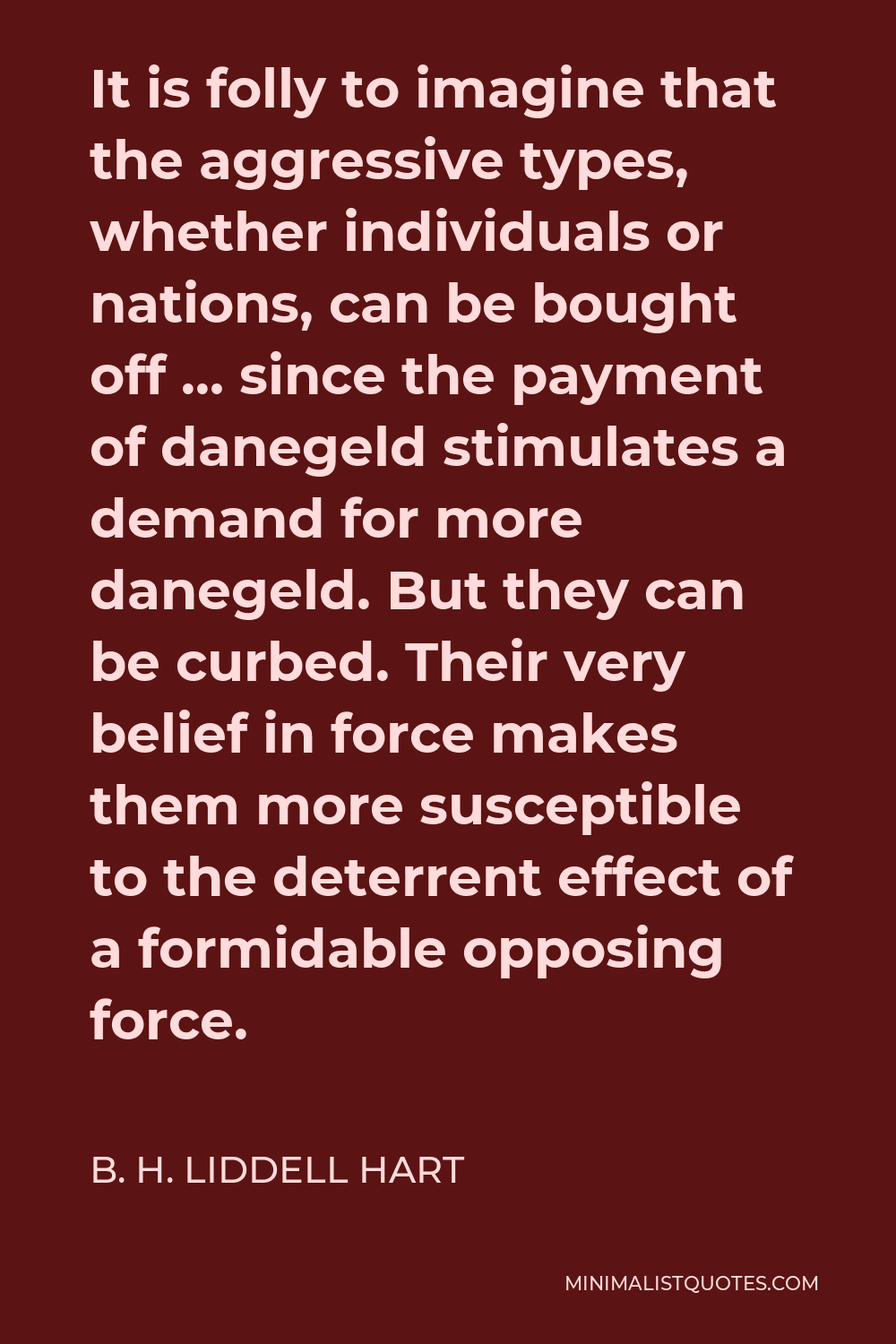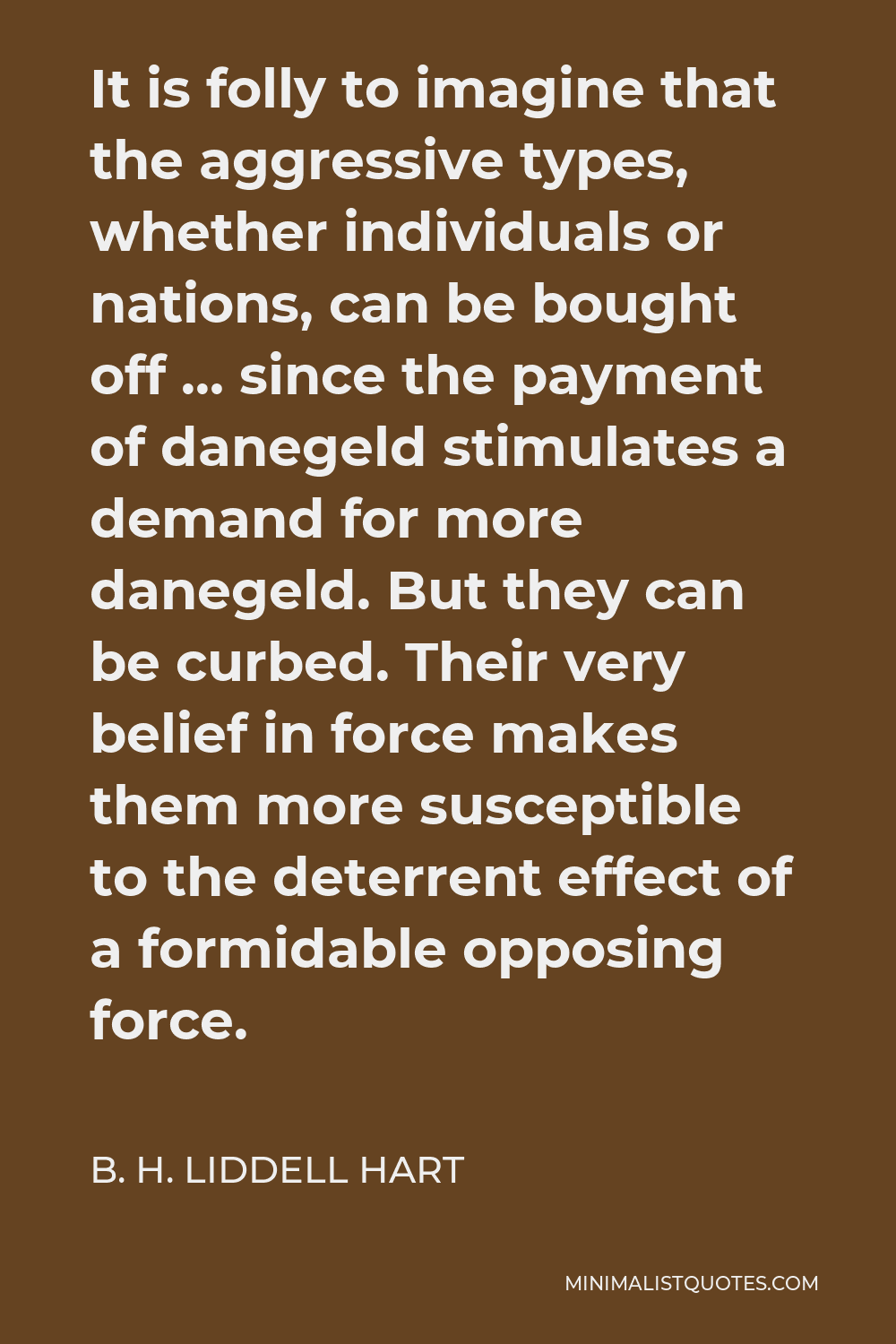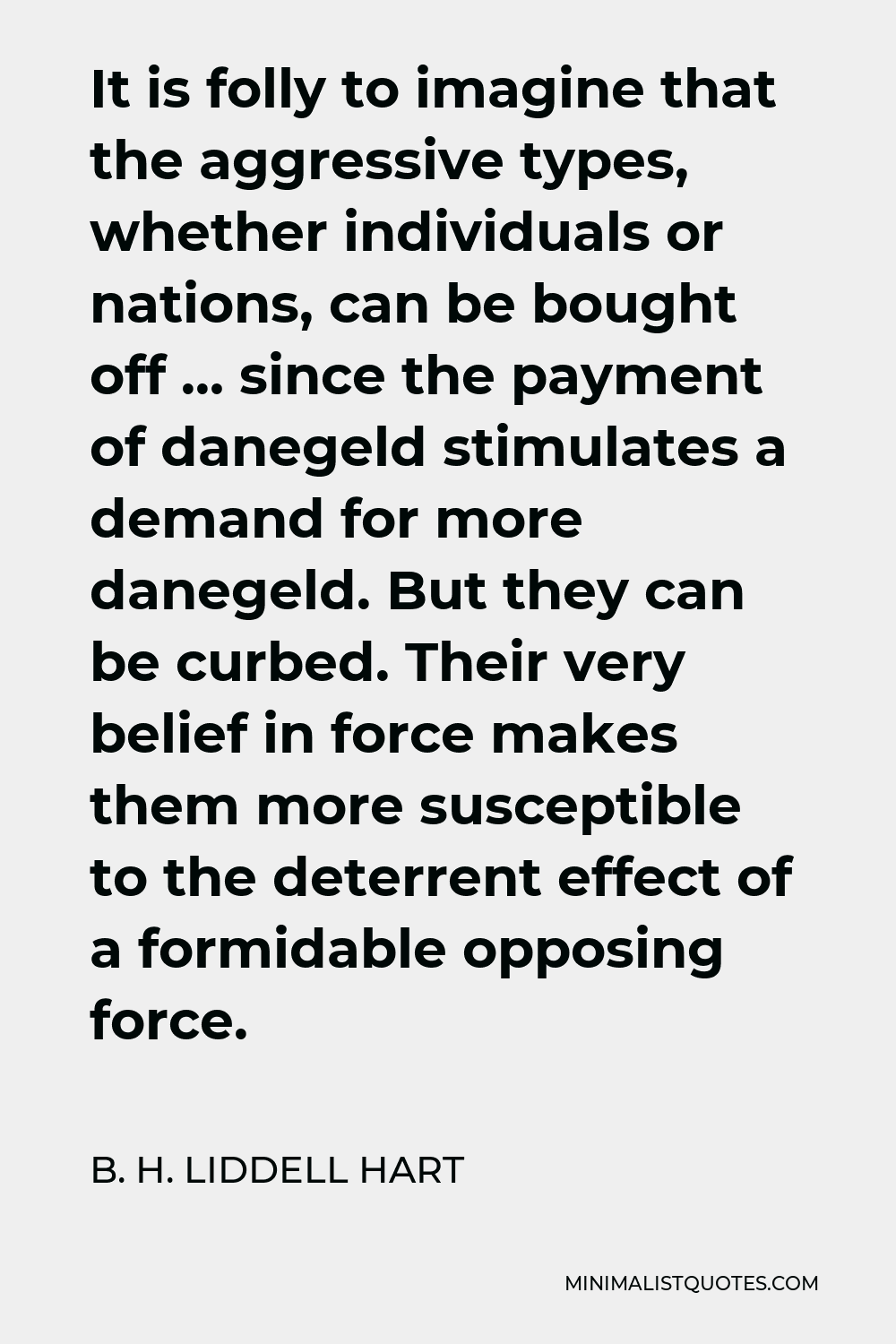The search for the truth for truth’s sake is the mark of the historian.
B. H. LIDDELL HARTIt is folly to imagine that the aggressive types, whether individuals or nations, can be bought off … since the payment of danegeld stimulates a demand for more danegeld. But they can be curbed. Their very belief in force makes them more susceptible to the deterrent effect of a formidable opposing force.
More B. H. Liddell Hart Quotes
-







-





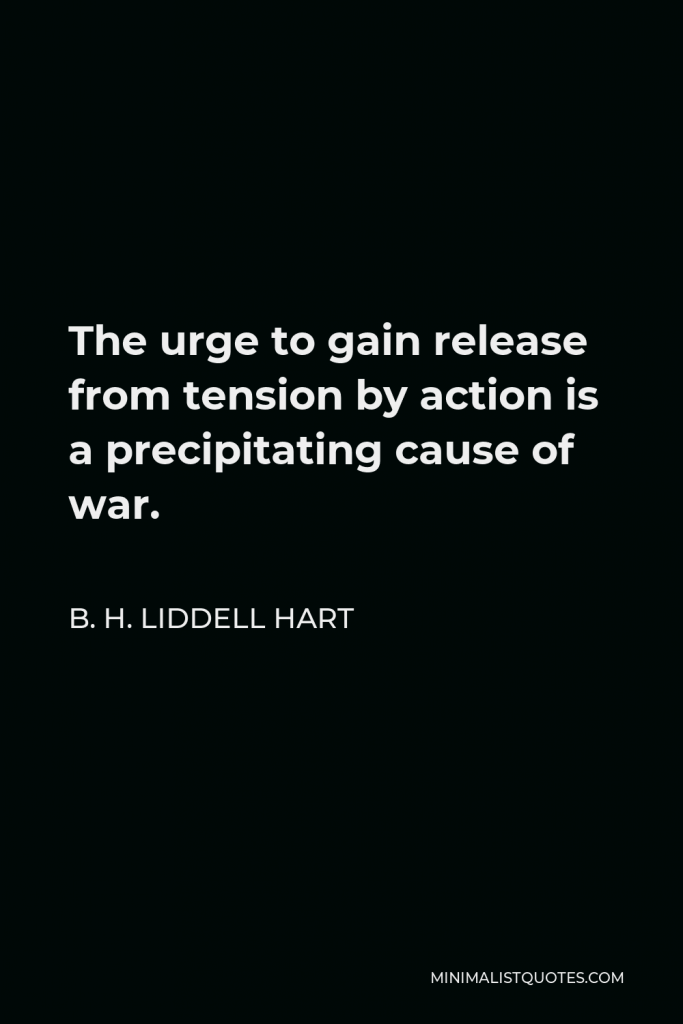

The urge to gain release from tension by action is a precipitating cause of war.
B. H. LIDDELL HART -





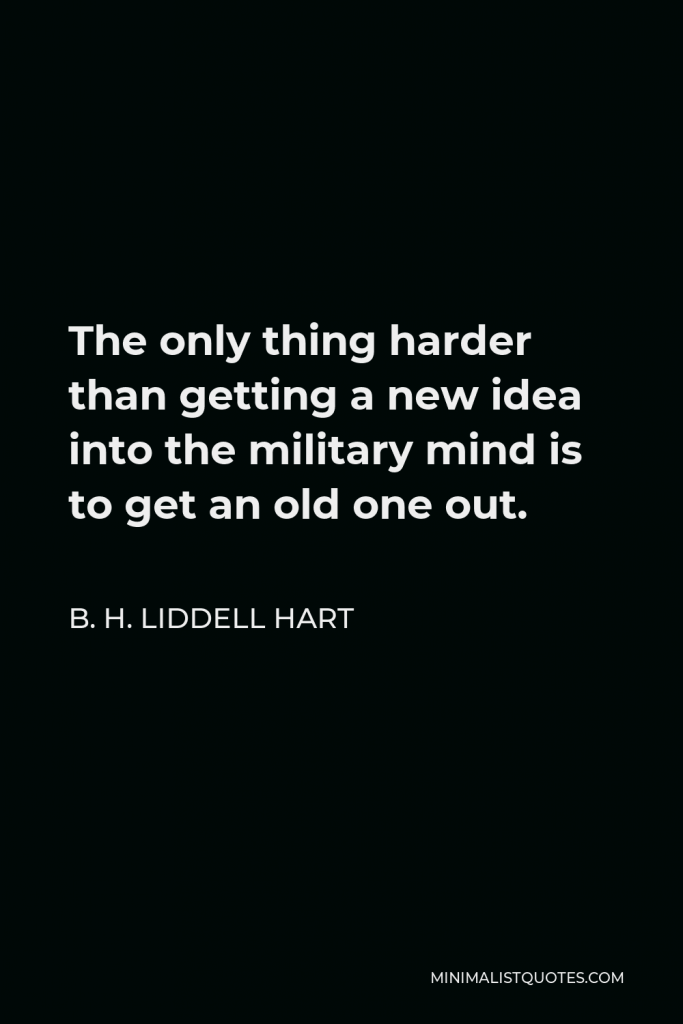

The only thing harder than getting a new idea into the military mind is to get an old one out.
B. H. LIDDELL HART -





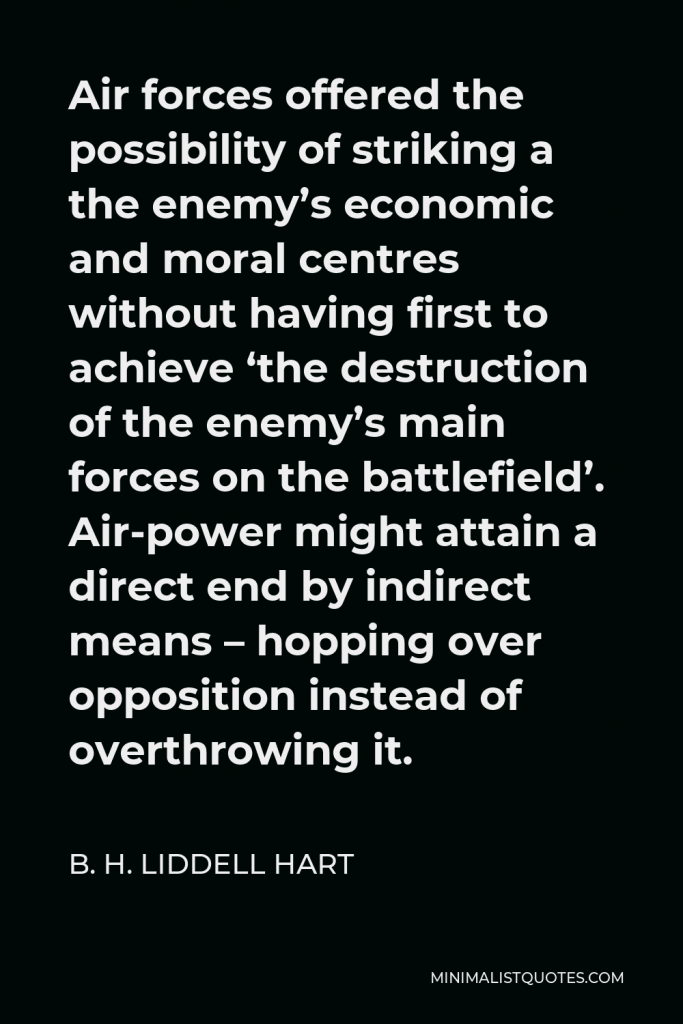

Air forces offered the possibility of striking a the enemy’s economic and moral centres without having first to achieve ‘the destruction of the enemy’s main forces on the battlefield’. Air-power might attain a direct end by indirect means – hopping over opposition instead of overthrowing it.
B. H. LIDDELL HART -





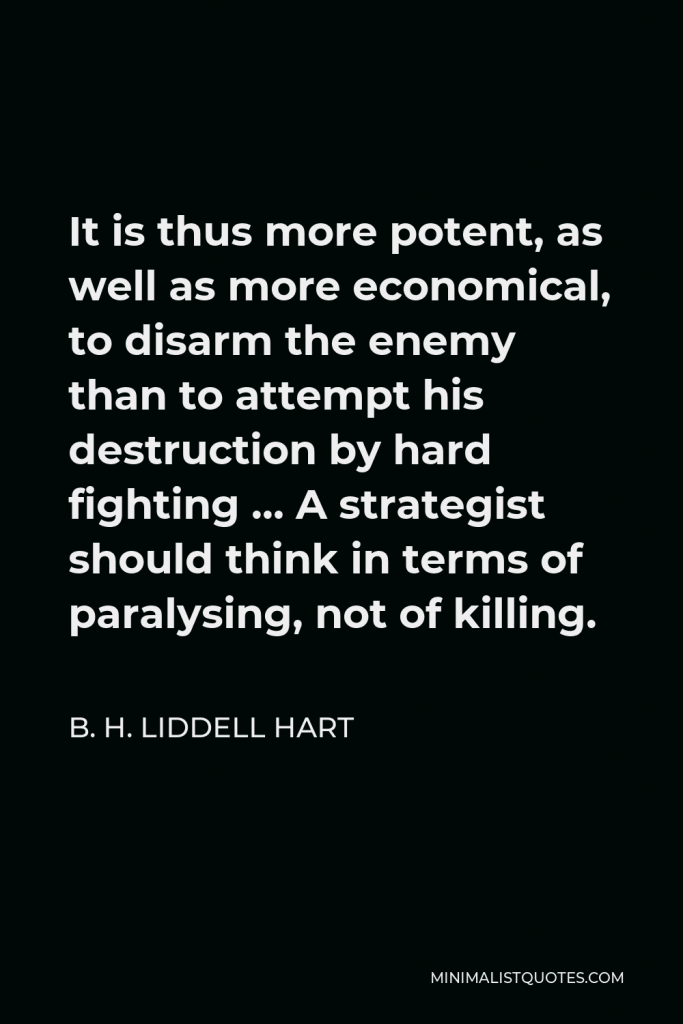

It is thus more potent, as well as more economical, to disarm the enemy than to attempt his destruction by hard fighting … A strategist should think in terms of paralysing, not of killing.
B. H. LIDDELL HART -





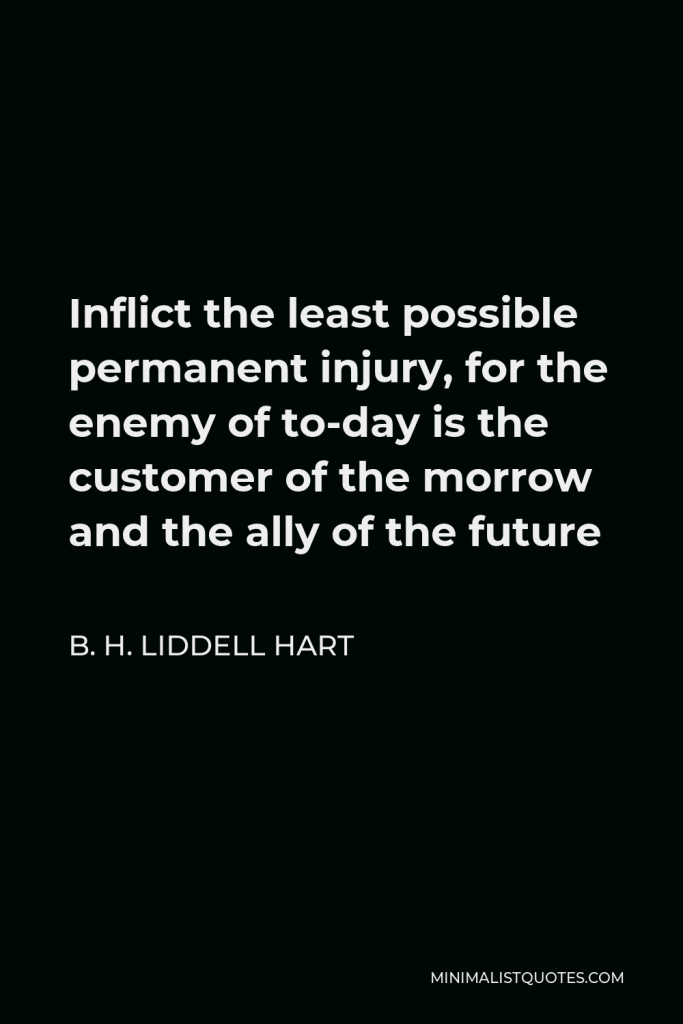

Inflict the least possible permanent injury, for the enemy of to-day is the customer of the morrow and the ally of the future
B. H. LIDDELL HART -





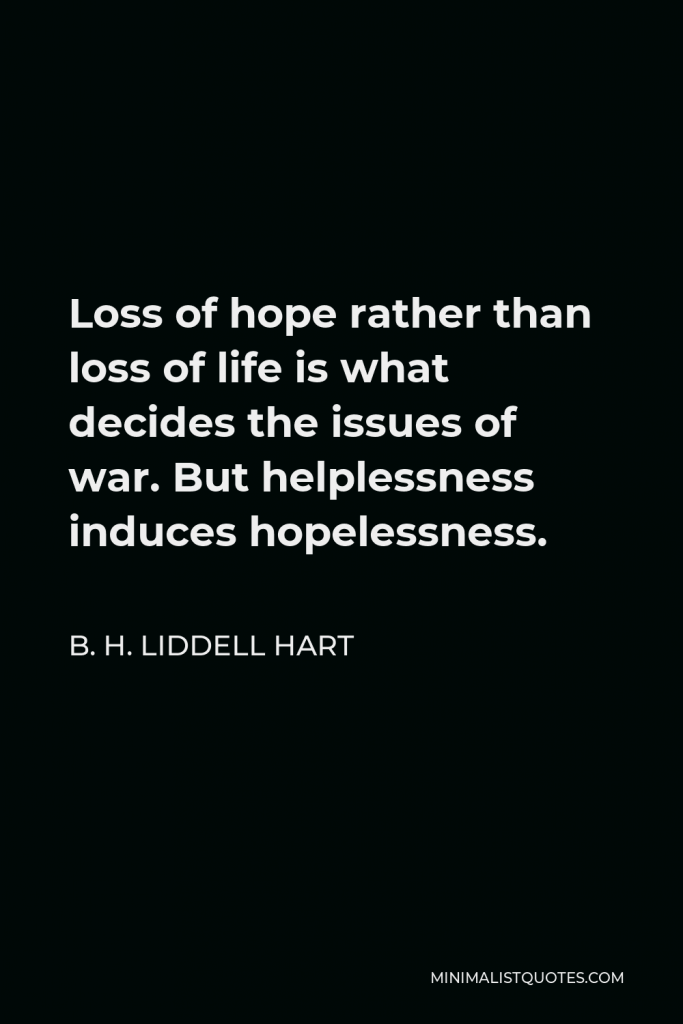

Loss of hope rather than loss of life is what decides the issues of war. But helplessness induces hopelessness.
B. H. LIDDELL HART -





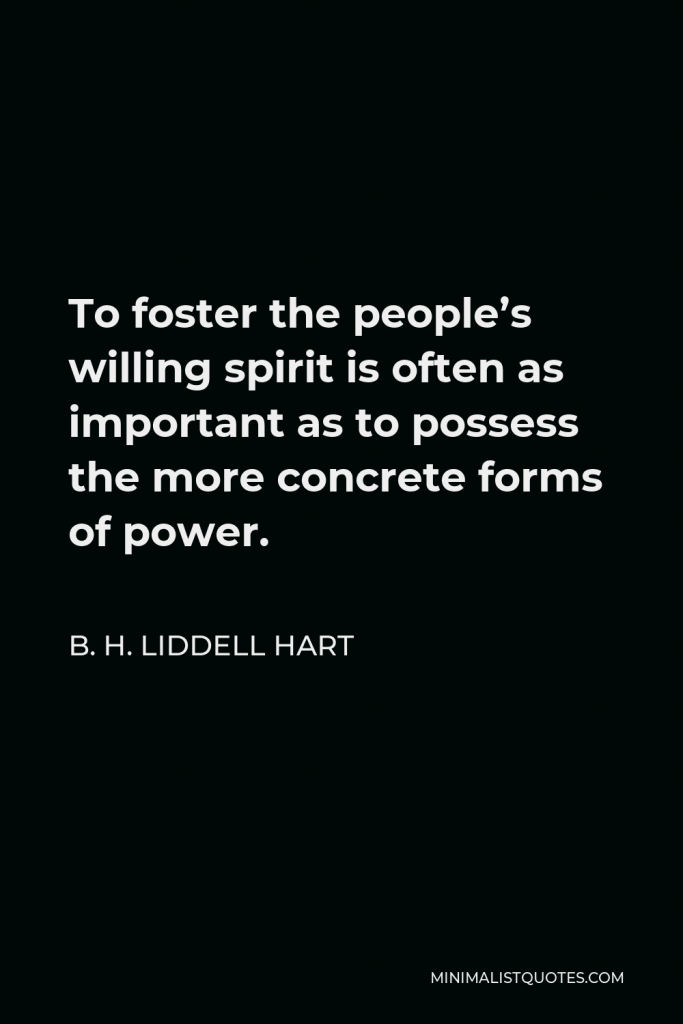

To foster the people’s willing spirit is often as important as to possess the more concrete forms of power.
B. H. LIDDELL HART -





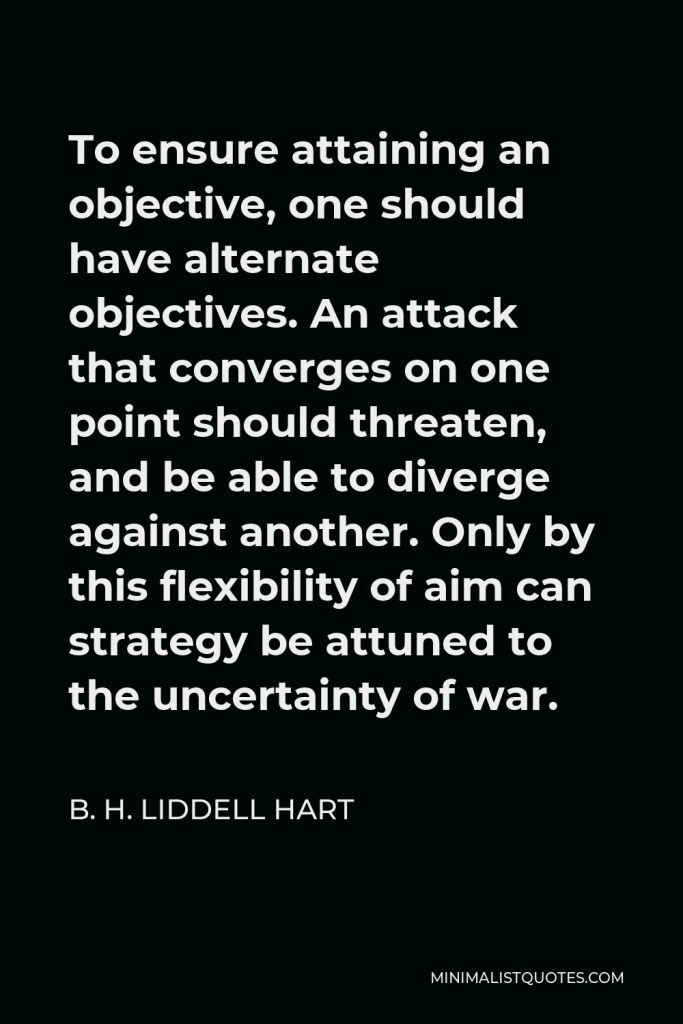

To ensure attaining an objective, one should have alternate objectives. An attack that converges on one point should threaten, and be able to diverge against another. Only by this flexibility of aim can strategy be attuned to the uncertainty of war.
B. H. LIDDELL HART -





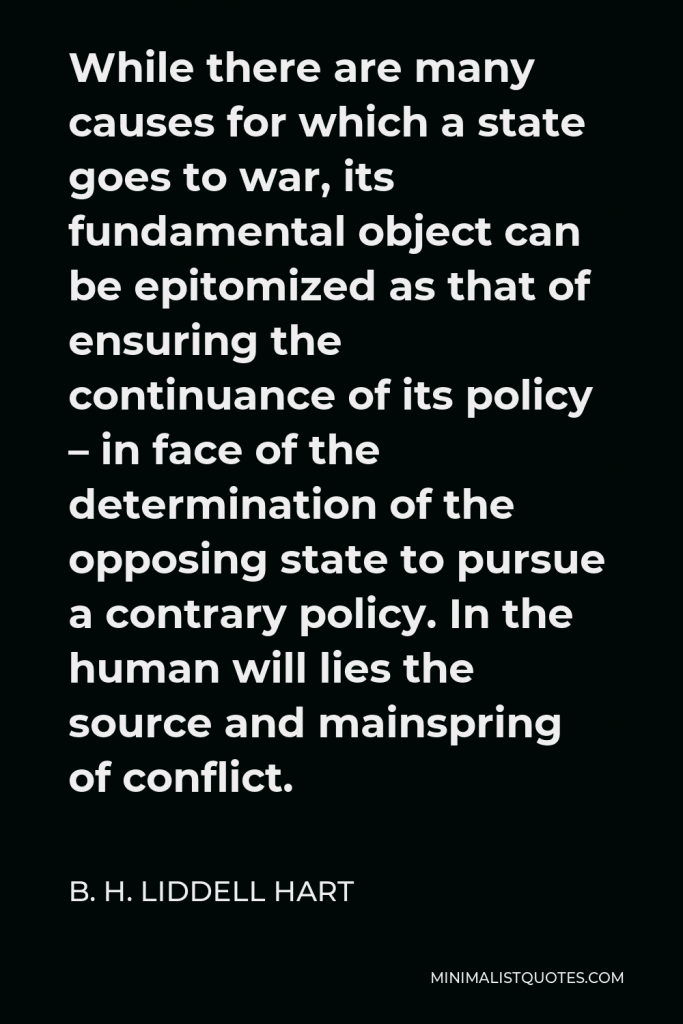

While there are many causes for which a state goes to war, its fundamental object can be epitomized as that of ensuring the continuance of its policy – in face of the determination of the opposing state to pursue a contrary policy. In the human will lies the source and mainspring of conflict.
B. H. LIDDELL HART -





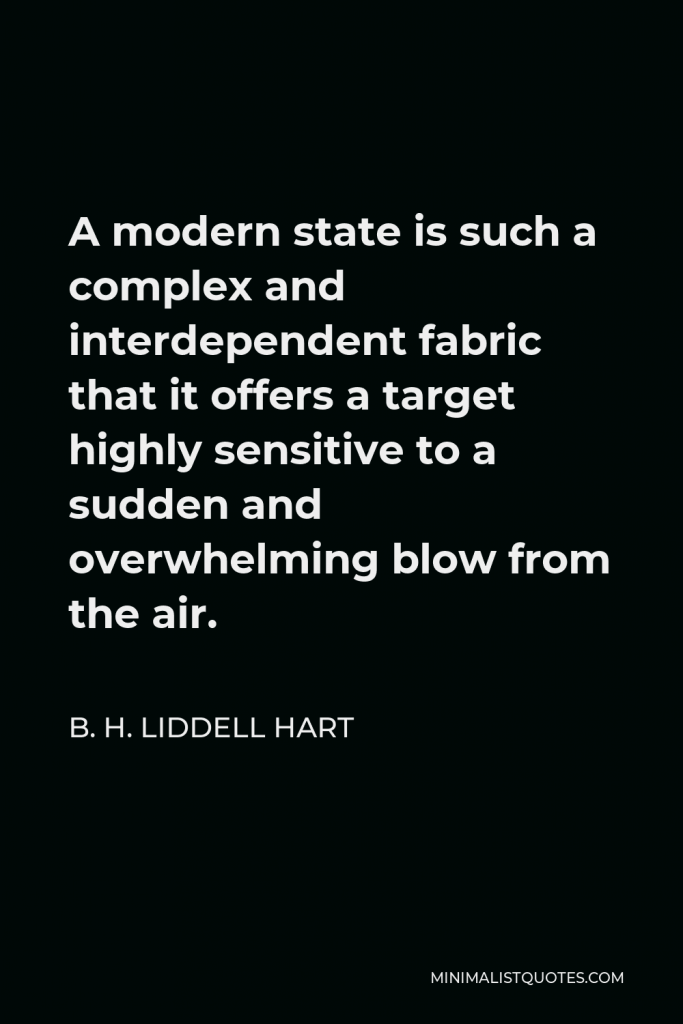

A modern state is such a complex and interdependent fabric that it offers a target highly sensitive to a sudden and overwhelming blow from the air.
B. H. LIDDELL HART -





![B. H. Liddell Hart Quote - [The] aim is not so much to seek battle as to seek a strategic situation so advantageous that if it does not of itself produce the decision, its continuation by a battle is sure to achieve this. In other words, dislocation is the aim of strategy.](https://minimalistquotes.com/wp-content/uploads/2022/10/the-aim-is-not-so-much-to-seek-battle-as-to-seek-a-683x1024.jpg)

[The] aim is not so much to seek battle as to seek a strategic situation so advantageous that if it does not of itself produce the decision, its continuation by a battle is sure to achieve this. In other words, dislocation is the aim of strategy.
B. H. LIDDELL HART -





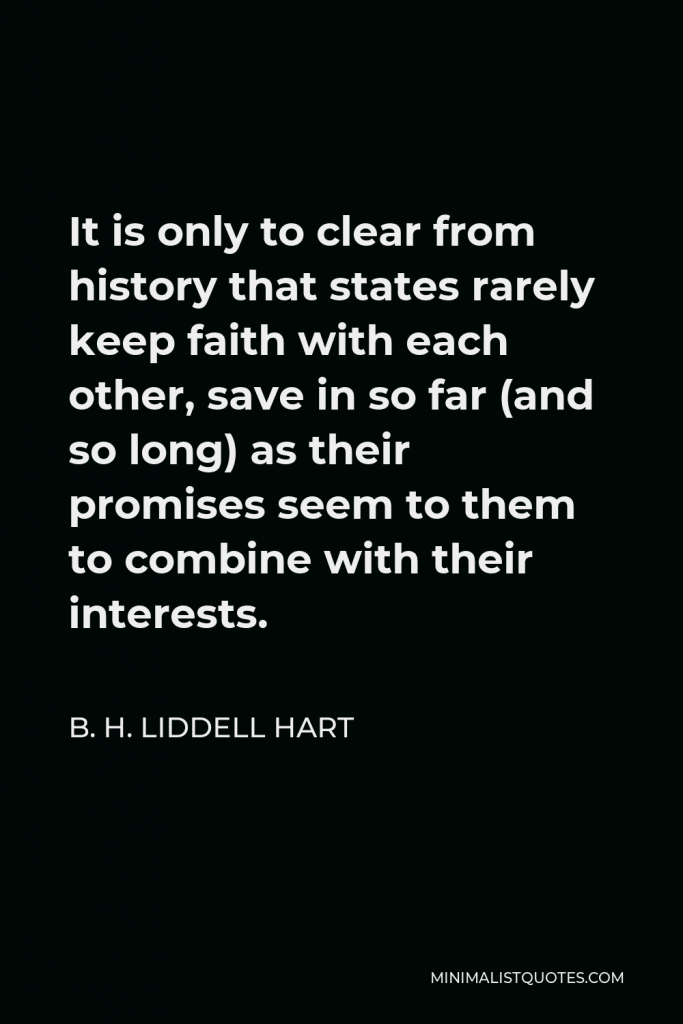

It is only to clear from history that states rarely keep faith with each other, save in so far (and so long) as their promises seem to them to combine with their interests.
B. H. LIDDELL HART -





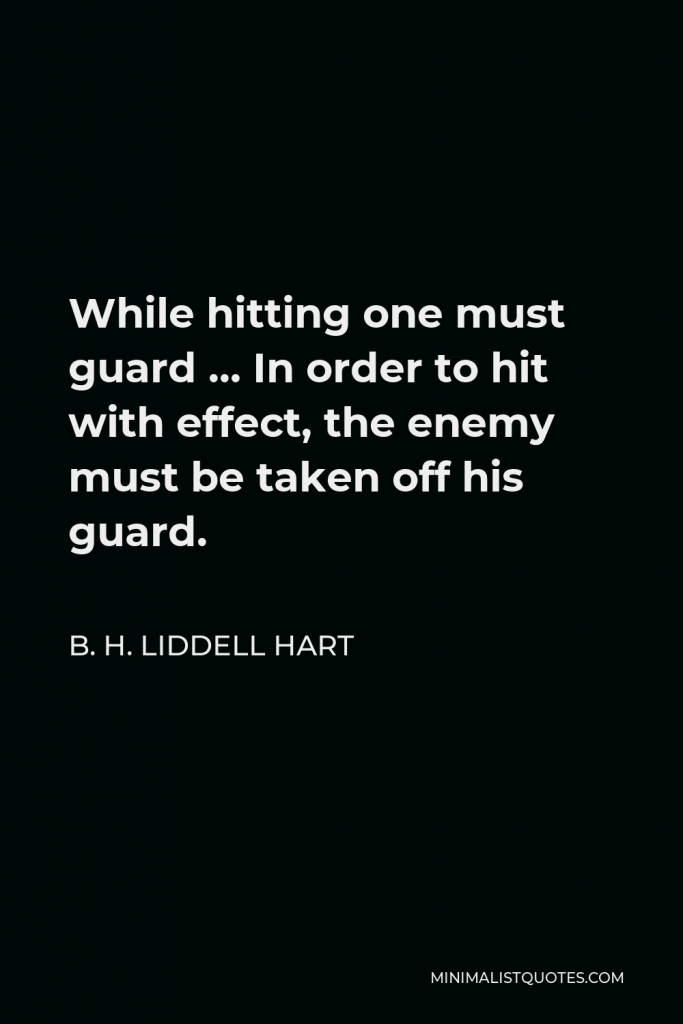

While hitting one must guard … In order to hit with effect, the enemy must be taken off his guard.
B. H. LIDDELL HART -





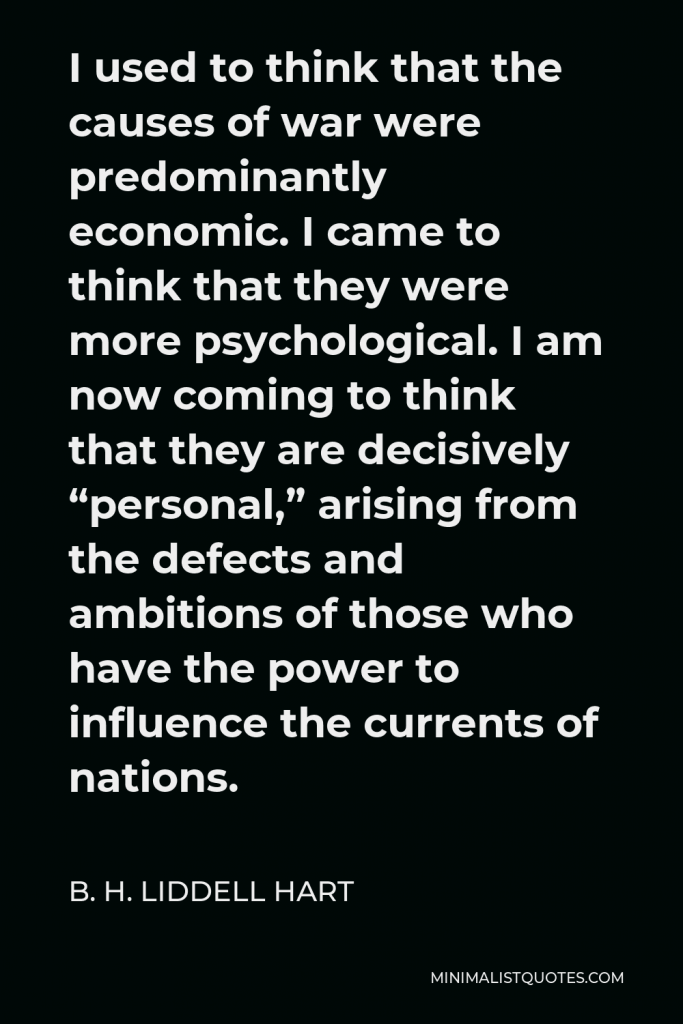

I used to think that the causes of war were predominantly economic. I came to think that they were more psychological. I am now coming to think that they are decisively “personal,” arising from the defects and ambitions of those who have the power to influence the currents of nations.
B. H. LIDDELL HART -





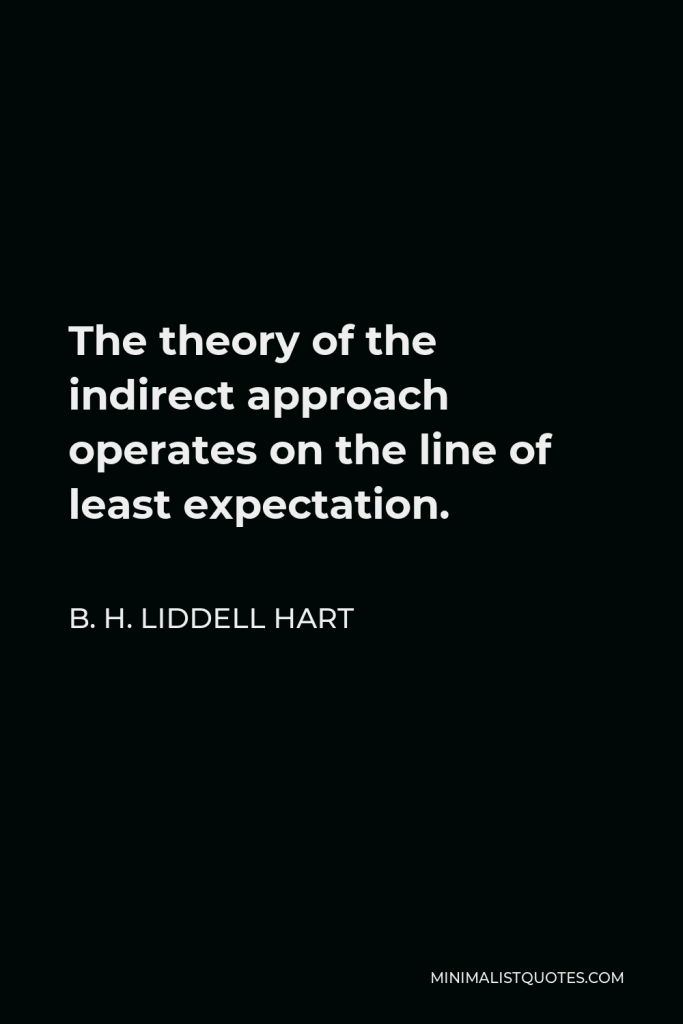

The theory of the indirect approach operates on the line of least expectation.
B. H. LIDDELL HART
